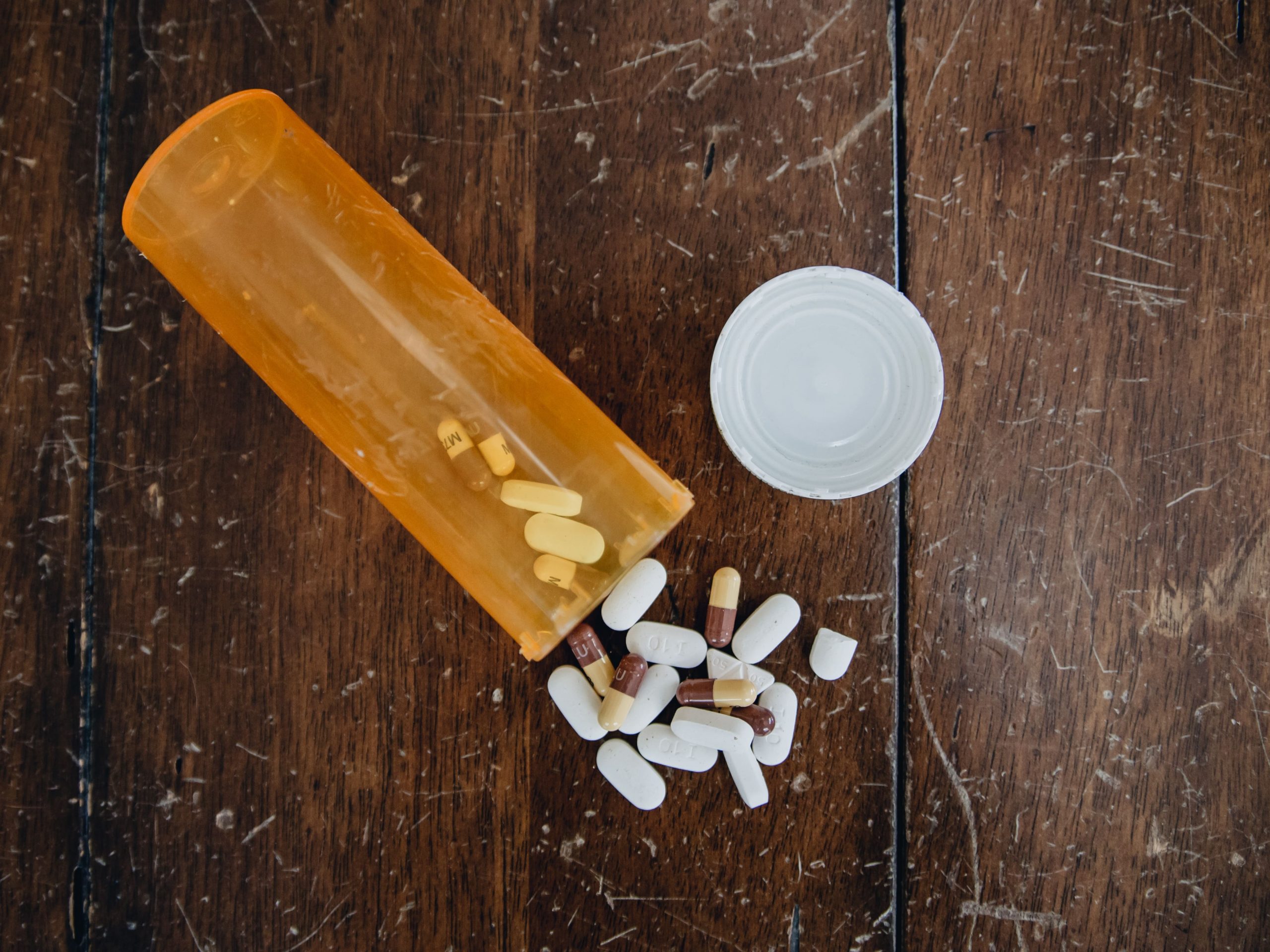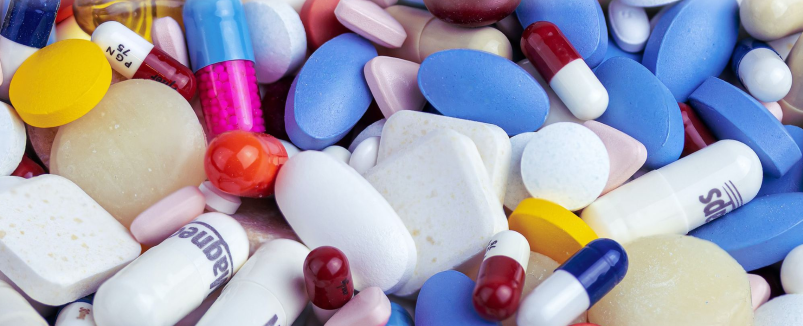“My own journey through addiction was the inspiration for Delamere. We provide exemplary care in first-class facilities, focusing on creating lasting outcomes for our guests and their families. Helping them not just overcome their addiction, but grow beyond it.”
Prescription Drug Addiction
Prescription drugs that have powerful painkilling, psychoactive, sedative, or stimulant effects, can and often do lead to prescription drug addiction. One of the most effective ways to treat this dependence is through residential prescription drug addiction treatment.


Within our purpose-built, luxury rehab centre, the Delamere experience is deliberately intensive and immersive in order to help you or a loved one to grow from any addiction not only physically, but mentally and spiritually too.
At Delamere, we provide a purpose-built healing retreat in Cheshire. Many of the professionals that make up the Delamere team have lived experience of addiction and recovery. This gives them a unique insight and understanding into the challenges every guest faces when trying to stay clear of drugs and other addictive substances and behaviours outside of the treatment environment.
At Delamere, we believe in the power of individuality and tailor your treatment to align with your unique needs, rather than following a rulebook. After supporting you through an assisted medical detox where you will have 24-hour support available to you, the next step of our prescription drug addiction treatment addresses the psychological aspects and root causes of the addiction through a variety of individual, group, and holistic therapies.
Guests will acquire the tools they need to remain abstinent and on completion of the residential programme stay connected with intermediate care and aftercare programmes.
Delamere’s modern addiction treatment model
“Delamere focuses on equipping you with the tools to love sobriety and understand what led to the addiction in the first place which really helped me grow.” – Former Delamere guest
View Our Treatment Model View our Environment Call now: 0330 111 2015
When to seek help for addiction to prescription drugs
People typically seek drug addiction help within a prescription drug rehab when their relationship with prescription drugs has become detrimental to themselves physically, mentally, emotionally, socially, and spiritually.
Signs of prescription drug addiction tend not to be as obvious as an alcohol or drug addiction however spotting them in yourself or someone you care for can lead to accessing life-saving treatment. Just because the drug is prescribed does not mean you should turn a blind eye or take the problem any less seriously than you would an addiction to say alcohol or hard drugs.
Over the years, our professionals have worked with many guests who have battled a prescription drug addiction. Whilst the signs and symptoms of drug addiction might be similar, we’re all unique and different drugs present different challenges. Our experts assess the level of the problem before devising a tailored prescription drug detox and support plan
Some common signs of a prescription drug addiction include:
- Regular doctor visits for recurring medical issues
- Seeking multiple doctors for increased prescriptions
- Online purchase of prescription drugs
- Heightened anxiety over prescription refills
- Dishonesty about prescription drug use
- Non-compliance with prescription guidelines
- Defensive reactions to challenges on drug use
- Inability to halt or regulate drug consumption
- Appetite changes and significant weight fluctuations
- Pronounced anxiety, depression, and mood swings
- Neglect of personal hygiene and appearance
- Emotional withdrawal and unavailability
- Unusual hostility or aggression
- Feelings of guilt and shame about drug use
- Emergence of new health issues due to drug abuse
- Drastic alterations in sleep patterns
All prescription drug addictions we treat
Our Delamere clinical team treat all manner of prescription drug addictions intensively and comprehensively within our state-of-the-art addiction treatment centre. Whatever form addiction presents itself in for you or your loved one, it requires professional prescription drug addiction treatment and support in order to successfully overcome it.


The Delamere approach to prescription drug addiction treatment
An inpatient stay at Delamere is a deliberately intensive 4-phase prescription drug addiction treatment, one which we have crafted over time and has helped many participants recover. Our emphasis is on holistic care to treat addiction and associated issues. This means that we treat the whole person rather than just the symptoms they present with. We believe that successful treatment runs far deeper than simply stopping the addictive substance or behaviour.
Our approach at Delamere comprises 4 core phases: Stop, Start, Grow, & Bloom. Everything we offer at Delamere aims at effective and lasting outcomes in addiction treatment:
How to encourage a loved one to get prescription drug addiction treatment
Many people with a prescription drug addiction refuse to acknowledge that they have an addiction and therefore resist professional help. Should it be necessary, we offer intervention services where our compassionate team will work to ensure that the atmosphere stays supportive and that there are clear goals to be met. If you are considering organising an intervention for someone you care for, contact Delamere today.
We also provide family support services where we offer advice and support whenever you need it; whether that be before, during, or after your loved one’s treatment with us.
Frequently asked questions about prescription drug addiction treatment
Opiate-based prescription painkillers are extremely addictive and can create a drug tolerance and dependence within as little as 5-7 days of continuous use. When we consider that at the root of all addiction is often some sort of physical or psychological pain, it is not surprising that painkillers literally become a problem for some. Sleeping pills, weight loss pills, and medications for depression and anxiety can also be particularly problematic for people who begin to use them outside of the recommended dosage.
Often, counterfeit cheaper alternatives to prescription drugs are available online and on the streets. These are particularly high risk, not only for addiction but also for life-threatening reactions and overdose. Their potency and questionable chemical formulas are unpredictable in their effects to say the very least.
If you or a loved one has developed a prescription drug addiction, Delamere addiction rehabilitation centre and behavioural health clinic specialises in delivering full medical detoxes and rehab programmes to address and treat the physical and psychological effects of any prescription drug addiction including but not limied to tramadol addiction, benzodiazepine addiction, and zopiclone addiction.
Let us help you today
Start your recovery journey by contacting us today.
Confidential. Straightforward. Friendly.
Help and Support for Prescription Drug Addiction Recovery
-
Prescription Drug Rehab
Learn more about our approach to prescription drug rehab. Visit Prescription Drug Rehab
-
Prescription Drug Detox
Learn more about our approach to prescription medication detox. Visit Prescription Medication Detox
Discover more advice on the Delamere blog
-
Librium detox: A guide to withdrawal and recovery
Read our guide to withdrawal & recovery of librium. We discuss the addictive potential & when a Librium detox may be required.
-
Key signs to look out for that put you at risk of pill addiction
At the beginning of this year, Adam Collard opened up about his painkiller addiction. We've pulled together risks to look out for.
-
Signs of prescription drug dependency
Long-term dependency on prescription drugs can lead to a wide range of health complications, find out more at Delamere.
-
5 signs someone has a painkiller addiction
Delamere’s holistic therapists discuss Valium addiction and its impact with advice on how to get help.





















